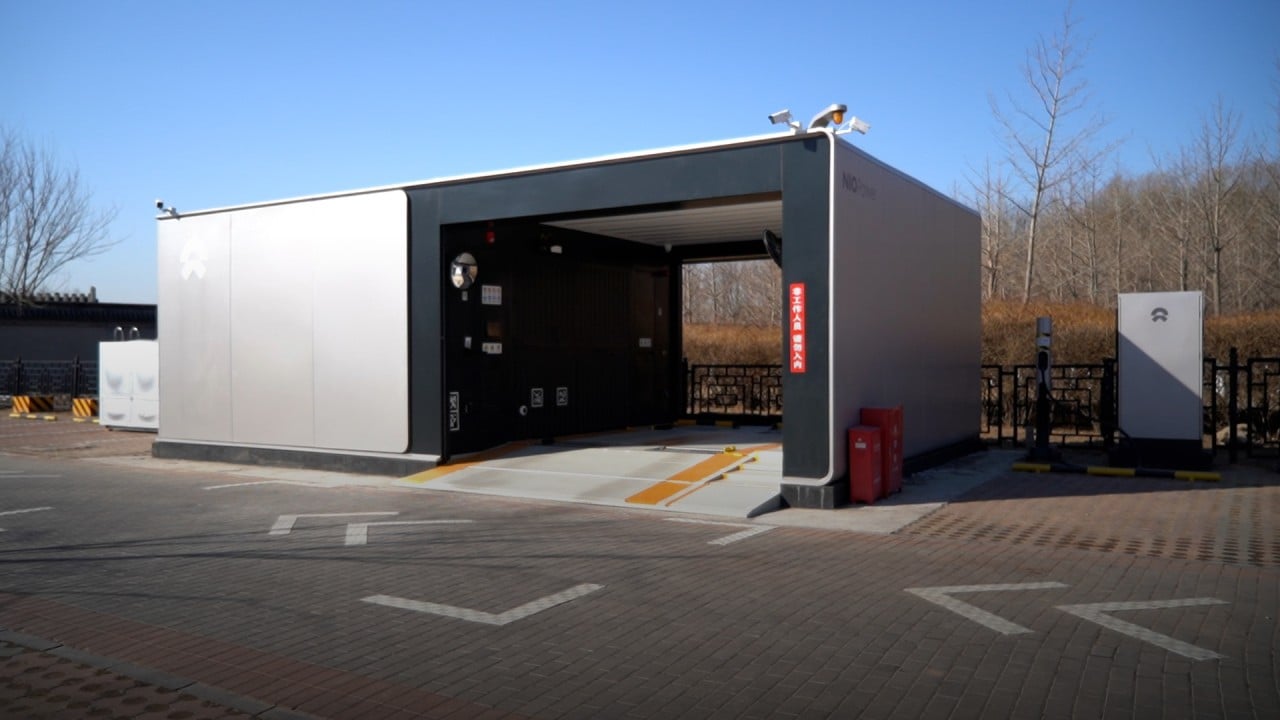
Xpeng, NIO, Li Auto post lacklustre EV deliveries for February as Lunar New Year holiday disrupted sales and production
- Analysts predict sales will rebound sharply in March when consumer demand returns to normal after the traditional low season
- The Ministry of Finance slashed cash subsidies granted to encourage purchases of new-energy vehicles by 30 per cent this year
Guangzhou-based Xpeng Motors delivered 6,225 smart EVs last month, the first time it has failed to surpass the 10,000-mark since September. That represented just 39 per cent of the record 16,000 units it delivered to customers in December.
In January the carmaker backed by Alibaba, owner of the South China Morning Post, delivered 12,922 units.
Xpeng said a technology upgrade at its Zhaoqing plant during the Lunar New Year holiday from late January to early February resulted in a lower volume of deliveries.
Li Auto, based in Beijing, delivered 8,414 vehicles last month, down 31.4 per cent from January.
The Lunar New Year holiday started on January 31 and ended on February 6.
“The Lunar New Year holiday is normally the low season for car sales,” said Tian Maowei, a manager with Yiyou Auto Service in Shanghai. “Many buyers had bought their new EVs ahead of the year-end in 2021, before a reduction in cash subsidies took effect on January 1.”
Thousands of mainland Chinese drivers bought new-energy vehicles – a term covering pure-electric, plug-in hybrid and fuel-cell cars – in December, ahead of the subsidy cut.
Now a pure-electric car with a driving range of more than 400 kilometres (248 miles) is eligible for a 12,600 yuan (US$1,997) subsidy.
The three carmakers, the major rivals to global EV leader Tesla in the mainland market, have reported sizzling sales growth since 2021 as mainland drivers have increasingly switched to battery-powered vehicles featuring autonomous driving, voice recognition and augmented reality (AR) and virtual reality (VR) technologies.
The Chinese trio reported combined sales of 280,075 electric cars in 2021, just 13 per cent shy of Tesla’s 321,000 units.
NIO said on Monday that it had received approval in principle from the Hong Kong stock exchange for its application to list.
The listing does not involve a new share issuance or fundraising.
NIO plans to deliver its new luxury ET7 sedan on March 28.
Li Auto said its production had fallen victim to a shortage of certain car components during the Lunar New Year holiday and the Covid-19 outbreak in Suzhou, Jiangsu province.
Tesla’s monthly delivery data is not known yet. The figures will be published by the China Passenger Car Association (CPCA) later this month.
The CPCA forecast NEV sales in China could jump 84 per cent on the year to 5.5 million units in 2022.


